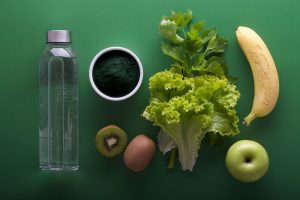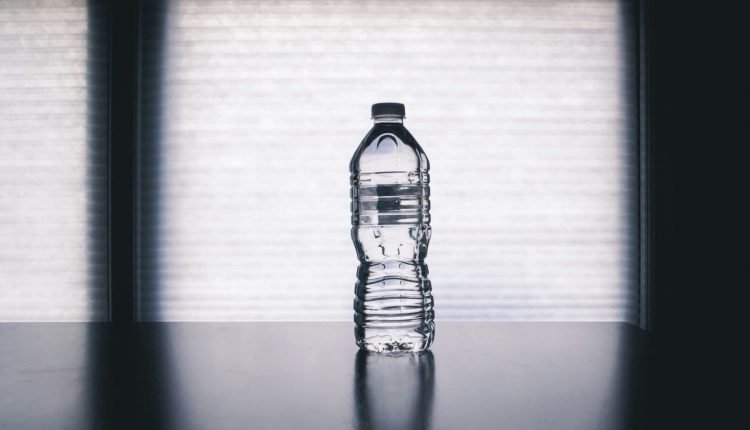The Essential Guide to Water and Your Health
The Vital Role of Hydration in Your Well-being
Welcome to the ultimate hydration guide, where we’re diving deep (pun intended) into why water is your best friend when it comes to staying healthy and happy. We all know that water is essential for life, but do you really know how it impacts your body? Let’s explore why staying hydrated is not just a summer thing but an all-year-round necessity!
Water Is Life: The Basics You Need to Know
Before we get into the nitty-gritty, let’s start with some basics. Water makes up about 60% of our body weight, and it’s involved in just about everything our body does. From regulating temperature to keeping your joints lubricated, water is the silent hero behind many of our bodily functions.
How Much Water Do You Really Need?
We’ve all heard the “eight glasses a day” rule, but the truth is, hydration needs vary depending on several factors like your activity level, environment, and even your diet. The Institute of Medicine suggests around 3.7 liters (about 13 cups) for men and 2.7 liters (about 9 cups) for women per day, but a more personalized approach is to drink enough water so that your urine is light yellow or clear.
Quick Hydration Hack: Keep a water bottle with you at all times. It’s a simple trick, but it works wonders!
Why Hydration Matters for Your Overall Health
Staying hydrated isn’t just about quenching your thirst—it’s about keeping your entire body in peak condition. Here’s a quick rundown of what water does for you:
- Boosts Brain Power: Did you know that even mild dehydration can affect your cognitive functions? When you’re not hydrated, your brain has to work harder, which can make you feel tired and less focused. Studies have shown that dehydration as little as 1-2% of body weight can impair brain function, affecting concentration, memory, and mood. So, if you’re feeling foggy or sluggish, it might be time to grab a glass of water!
- Keeps Your Skin Glowing: Your skin is your body’s largest organ, and it’s made up of cells that need water to function properly. When you’re well-hydrated, your skin looks plump and healthy, and you’re less likely to suffer from dryness and flakiness. Water helps to flush out toxins that can cause skin problems, and it also keeps your skin hydrated from the inside out, reducing the appearance of wrinkles and giving you that youthful glow.
- Aids in Digestion: Water helps break down the food you eat and allows your body to absorb nutrients more effectively. It also keeps things moving smoothly in your digestive tract, preventing constipation. When you’re dehydrated, your digestive system struggles to function properly, leading to bloating, gas, and discomfort. Drinking water before, during, and after meals can help your body digest food more easily and prevent these issues.
- Supports Your Kidneys: Your kidneys play a crucial role in filtering out toxins and waste from your blood, and they need plenty of water to do their job effectively. Staying hydrated can also help prevent kidney stones, which are as painful as they sound. Water dilutes the substances in urine that lead to stones, making it less likely that they will form.
- Regulates Body Temperature: When you exercise or when it’s hot outside, your body sweats to cool down. Water is lost through sweat, so it’s essential to drink enough fluids to stay cool and prevent dehydration. Proper hydration helps maintain your body’s temperature, reducing the risk of heat-related illnesses such as heatstroke.
The Surprising Signs of Dehydration
You might think that thirst is the only sign you need more water, but dehydration can sneak up on you in unexpected ways. Here are some surprising symptoms to watch out for:
- Headaches: A dehydration headache can feel like a dull ache or even a full-blown migraine. Next time you feel one coming on, try drinking a glass of water before reaching for the painkillers. Dehydration decreases blood flow and oxygen to the brain, causing it to swell and triggering pain receptors.
- Mood Swings: Feeling cranky for no reason? Dehydration can affect your mood and make you feel irritable or anxious. A well-hydrated body supports better emotional balance. When you’re dehydrated, your body produces more cortisol, the stress hormone, which can lead to increased feelings of stress and anxiety.
- Dry Mouth and Bad Breath: Saliva has antibacterial properties that help keep your mouth clean. When you’re dehydrated, you produce less saliva, which can lead to bad breath and a dry, sticky feeling in your mouth. Drinking water helps to wash away food particles and bacteria that can cause bad breath.
- Fatigue: Feeling unusually tired? It might be because your body isn’t getting enough water to perform its essential functions, leaving you feeling sluggish and drained. Water is crucial for maintaining your energy levels, as it helps transport nutrients and oxygen to your cells.
- Dark Urine: If your pee is a dark yellow color, it’s a clear sign that you need more water. Ideally, your urine should be light yellow or almost clear. Dark urine indicates that your kidneys are holding onto water to maintain hydration, which can also mean that they are working harder to filter out toxins.
Hydration Myths Busted
There are plenty of myths floating around about hydration. Let’s set the record straight:
- Myth 1: You Can Only Hydrate with Water
While water is the best option for hydration, it’s not the only one. Foods like fruits and vegetables have high water content and can contribute to your daily hydration needs. For example, watermelon, cucumbers, and strawberries are all over 90% water. Herbal teas, broths, and even foods like yogurt and smoothies can also count towards your daily fluid intake. - Myth 2: Coffee and Tea Dehydrate You
It’s true that caffeine is a diuretic, meaning it makes you pee more, but the amount of water in coffee and tea generally offsets this effect. So, while they shouldn’t be your primary source of hydration, they do contribute to your overall fluid intake. Recent studies suggest that the diuretic effect of caffeine is mild, and coffee and tea can actually be counted toward your daily hydration goal. - Myth 3: You Can’t Overhydrate
Yes, it’s possible to drink too much water, a condition known as hyponatremia or water intoxication. However, this is rare and usually only happens in extreme situations, like during intense endurance events where someone drinks large amounts of water without replacing electrolytes. Symptoms of overhydration include nausea, headache, confusion, and in severe cases, seizures. - Myth 4: Drinking Ice-Cold Water Helps Burn Calories
While drinking cold water can help cool you down and might slightly increase your metabolic rate as your body works to warm it up, the calorie-burning effect is minimal. It’s more important to focus on staying hydrated rather than trying to burn extra calories this way.
Tips for Staying Hydrated
Now that you know why hydration is important, let’s talk about how to make sure you’re getting enough water every day:

- Start Your Day with Water: Make it a habit to drink a glass of water first thing in the morning. It helps kickstart your metabolism and rehydrates your body after hours of sleep. Consider adding a slice of lemon for a refreshing twist and a dose of vitamin C.
- Infuse Your Water: If plain water bores you, try infusing it with fresh fruits, herbs, or veggies. Lemon, mint, cucumber, and berries are all great options to add flavor without added sugar. This not only makes your water taste better but also encourages you to drink more.
- Eat Your Water: Incorporate more water-rich foods into your diet. Think soups, smoothies, and salads loaded with hydrating fruits and vegetables. Foods like celery, tomatoes, and oranges are excellent choices, and they also provide essential nutrients along with hydration.
- Set Reminders: Life gets busy, and sometimes we forget to drink enough water. Set a reminder on your phone or use an app to keep track of your intake. There are plenty of apps available that can help you monitor your water consumption and send you gentle reminders throughout the day.
- Carry a Reusable Water Bottle: Having a water bottle on hand makes it easy to sip throughout the day, whether you’re at work, the gym, or running errands. Look for a bottle that’s easy to carry and has a capacity that suits your needs. Some bottles even come with time markers to help you pace your drinking throughout the day.
- Listen to Your Body: Thirst isn’t the only indicator that you need water. Pay attention to other signs like fatigue, headaches, or dry skin, and hydrate accordingly. Your body is good at signaling its needs, so be mindful and responsive to these cues.
- Hydrate with a Purpose: If you’re going into a situation where you know you’ll lose more water—like exercising, spending time in the sun, or consuming alcohol—plan to hydrate in advance. Pre-hydrating can help you avoid dehydration and its uncomfortable symptoms.
Hydration and Exercise What You Need to Know
If you’re physically active, your hydration needs increase. Here’s how to stay hydrated before, during, and after exercise:
- Before Exercise: Drink water about 2-3 hours before your workout to ensure your body is well-hydrated. This helps maximize your performance and reduces the risk of cramps and dizziness. You can also have a small glass 20-30 minutes before starting your workout.
- During Exercise: Sip water every 15-20 minutes during your workout, especially if it’s longer than 30 minutes. If you’re doing intense exercise or it’s particularly hot, consider a sports drink to replace lost electrolytes. Electrolytes like sodium and potassium are important for maintaining fluid balance and muscle function.
- After Exercise: Rehydrate after your workout to replace the fluids you lost through sweat. A good rule of thumb is to drink about 16-24 ounces of water for every pound of body weight lost during exercise. If your workout was especially intense or long, consider including an electrolyte-rich beverage or snack.
Hydration and Your Immune System
With everyone focused on boosting their immune systems these days, it’s important to know that hydration plays a crucial role in keeping you healthy. Water helps transport nutrients to your cells and flushes out toxins from your body. When you’re dehydrated, your body has a harder time fighting off infections.
Quick Tip: During cold and flu season, increase your water intake to help your body stay strong and resilient against germs. Staying hydrated also helps maintain the health of your mucous membranes, which are your body’s first line of defense against pathogens.
Staying Hydrated in Different Climates
Your environment plays a big role in how much water you need. Here’s how to stay hydrated no matter where you are:
- Hot and Humid Climates: In hot, humid environments, you sweat more, so you need to drink more water to compensate for the fluid loss. Keep a bottle of water with you and take frequent sips throughout the day. Adding a pinch of salt to your water can help replenish lost sodium and prevent muscle cramps.
- Cold Climates: Even in colder weather, your body needs water. Cold air can dry out your skin and respiratory system, so drink water regularly, even if you don’t feel as thirsty. You may not sweat as much in the cold, but your body still loses water through breathing and urination.
- High Altitudes: At higher altitudes, the air is thinner and drier, which can lead to quicker dehydration. Increase your water intake when you’re in the mountains or flying at high altitudes. Drinking water can also help alleviate altitude sickness symptoms like headaches and nausea.
- Dry Climates: In arid environments, your body can lose moisture quickly, even if you’re not sweating. Make sure to drink water consistently, and consider using a humidifier at home to maintain a healthy level of humidity in the air.
![]()
The Future of Hydration What’s New
Hydration science is evolving, and there are some cool new developments on the horizon:
- Smart Water Bottles: These gadgets track your water intake and remind you to drink more. Some even sync with your smartphone or fitness tracker to give you real-time hydration data. With features like temperature control and UV sterilization, smart bottles are making hydration more efficient and personalized.
- Hydration Supplements: Electrolyte powders and hydration tablets are becoming popular for their convenience, especially for athletes or those on the go. They help replenish essential minerals like sodium, potassium, and magnesium that you lose through sweat. Many of these supplements are also designed to be low in sugar and free from artificial additives.
- Plant-Based Hydration: More people are turning to plant-based waters, like coconut water and aloe vera juice, for their natural electrolytes and added health benefits. These drinks are a great alternative to traditional sports drinks, offering hydration with the bonus of vitamins, antioxidants, and other nutrients.
- Hydration Wearables: The next generation of fitness wearables will likely include hydration tracking as a standard feature. These devices could monitor your body’s hydration levels in real-time, providing personalized recommendations based on your activity level, environment, and other factors.

Wrapping It Up Water Is Your Wellness BFF
In the grand scheme of things, staying hydrated might seem like a small task, but it has a big impact on your overall health. From keeping your skin glowing to boosting your brainpower, water is the unsung hero of wellness. So, grab that water bottle, take a sip, and toast to a healthier, happier you!
Remember, staying hydrated isn’t just about survival—it’s about thriving. Whether you’re sipping on a cool glass of water or munching on a hydrating snack, keep your body’s water levels in check, and you’ll feel the benefits from head to toe. Cheers to hydration!
Hydration is a simple yet powerful tool for enhancing your health and well-being. By making a conscious effort to drink enough water each day and staying attuned to your body’s needs, you can improve your energy levels, mood, skin, digestion, and more. Plus, with all the innovative ways to stay hydrated, from smart bottles to plant-based drinks, there’s never been a better time to embrace the power of water. Stay hydrated, stay happy, and enjoy the many benefits that come with making water a priority in your life!


